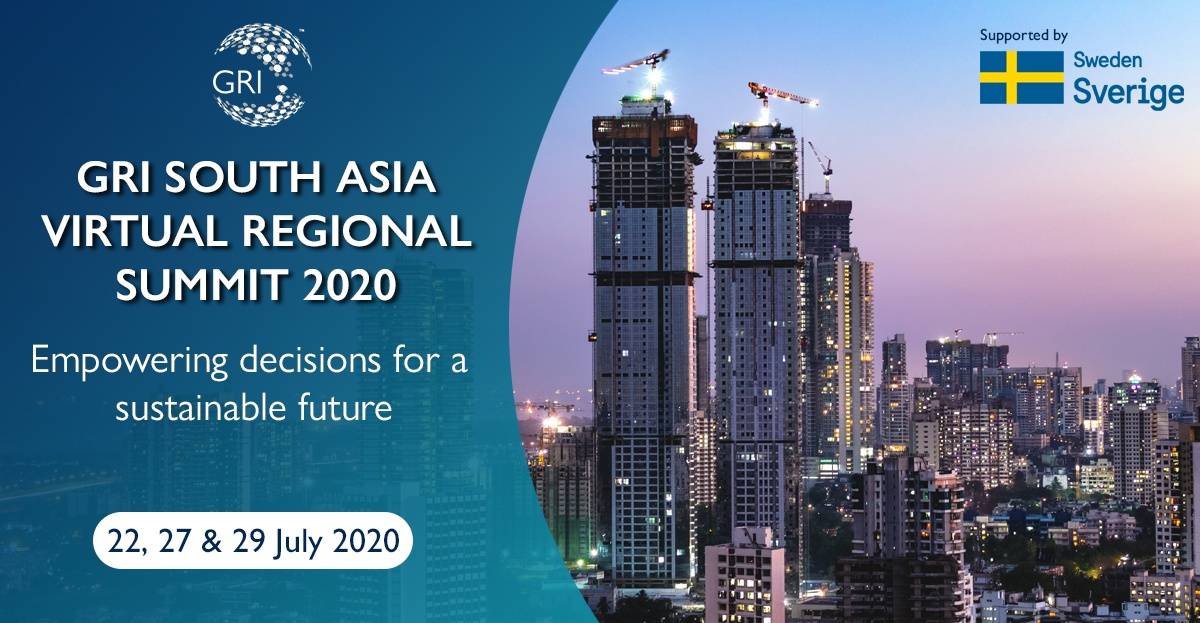
Location: Online
Organizer: RPAC
Empowering Decisions for a Sustainable Future
SWITCH-Asia RPAC Speaking during Webinar 3 Session 5: Shifting from the Take-Make-Waste Economy to Circular Solutions
Date: 27th July 2020 Time: 16:45-17:45 IST (UTC +05:30) Register: https://bit.ly/3joCn2d
Facilitator:
Pallavi Atre, Sustainability Expert, GRI South Asia
 Chair:
Chair:
Dr. Rachna Arora, European Union – Resource Efficiency Initiative (EU – REI), India
Panelists:
- Anna Krotova, Senior Manager -Standards, GRI
- Archana Datta, SWITCH-Asia RPAC Coordinator for India ,UNEP
- Prabodha Acharya, Chief Sustainability Officer, JSW Group
- Gamini Senanayake, Founder President-Sustainable Consumption & Production Forum, Sri Lanka
- Kumaraswamy Chandrashekhara, VP & Head Sustainability, BSI India
- Chirag Gajjar, Head Subnational Climate Action, WRI India
Scope of the session
- Understanding circularity: waste is a resource out of place
- Disclosure results in improving resource efficiency
- Circular economy and competitiveness
Setting the context
- World Economic Forum (WEF) estimated (2019) resource extraction and processing alone cause >90% of global biodiversity loss and water stress, and about 50% of effects of global climate change
- World Bank reports without urgent action, annual global waste generation will rise to 3.4 billion tonnes by 2050, a 70% increase on 2018 levels. Over 33% of waste in high-income countries is recovered through recycling and composting, only 4% of waste in low-income countries is recycled.
- Circular economy refers to an economic model whose objective is to produce goods and services in a sustainable way, by limiting the consumption and waste of resources (raw materials, water, energy) as also the production of waste
- Fundamentally breaks the model of the linear economy by identifying and implementing ways to transform traditional waste into input material for product design or other uses
- Fits directly into the more general framework of sustainable development; uses - among other things - the principles of green economy, industrial ecology, eco-design and the economy of functionality
- 7 complementary patterns which reinforce each other: (1) Sustainable procurement - responsible purchasing policy (2) Eco-design - process of reducing the environmental impacts of a product or service throughout its life cycle (3) Industrial ecology - search for synergies at scale such that the waste/s of one company serve/s as resource/s of another (4) Economics of functionality - collaborative economy that favours selling services related to products rather than the products themselves(5) Responsible consumption - rational consumption and choice of products according to real need as well as social and ecological criteria (6) Extending the life - repair, reuse and repurpose (7) Recycling - treatment and recovery of the materials contained in collected waste
- Covers multiple SDGs; benefits encompass economic (stimulates innovation and boost economic growth, and enhance competitiveness of companies), environmental (protects the environment, reduces waste and emissions of greenhouse gases, systematises recycling, ends planned obsolescence, and decreases dependence on import of resources) and social (creates jobs, enables people to save money, cuts unemployment and poverty, and reduces social impacts of pollution and climate change) dimensions
- Institutional challenges: Rules and regulations need to be adapted to encourage and promote the development of the circular economy, both nationally and internationally. Strengthening local governmental policies to support its implementation, as well as bringing clear legislation are key to promote the transition towards circular economy business models.
- Economic challenges: Business transformation is costly. Therefore, financial incentives are essential to achieve circular economy. Lowering tax on recycled products and increasing tax on virgin raw materials are examples of solutions that could be adopted to accelerate the uptake of circular economy initiatives.



